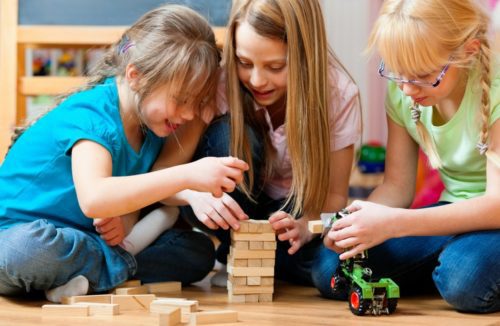All of us have a limit for the amount of patience we have each day. When it is gone, there is no getting it back. As adults we can feel when our breaking point is coming. Our body signals to us that our patience is running low, and when we’re running on empty, we can feel the urge to explode bubbling up through our bodies.
Kids don’t have the ability and mindfulness to know when they have had enough. Young children may have what we adults refer to as a tantrum, while children who are a little bit older may use what is sometimes called “verbal diarrhea” to cope with their emotional and mental tank being on empty.
Being able to self-regulate your emotions or control your responses to what is going on around you is not an easy task. It comes with age, maturity, and practice. But if you just can’t take one more meltdown from your child while at Target this month, playing certain kinds of games with your child can help them develop and strengthen their ability to self-regulate their emotions. Try playing games and activities with your child that encourage them to problem solve, sequence, perform motor control, use their memory, or have sustained attention or focus.

Here are 10 activities and games to get your child started on learning how to self-regulate their behavior.
10 Games that Teach Self-Regulation
1. Play a board game that promotes concentration, such as Operation.
2. Participate in an exciting game of Simon Says.
3. Turn up the music and have a Freeze Dance party.
4. Go outside and play a classic game of Red Light, Green Light.
5. Relax and do some yoga together.
6. Play an active game of Hide and Seek either indoors or outdoors.
7. Challenge your child to a game of Jenga.
8. Get the neighborhood kids together and play Duck Duck Goose.
9. Play a game of Balloon Volleyball in your living room.
10. Together do a sequence of motor skills (for example: do 2 hops, then 4 jumping jacks, then march for 10 seconds, and repeat).

After playing and completing some of these types of activities over the course of several weeks or months, you will hopefully find that your child has increased their ability to respond to their environment in a more socially appropriate way. As a result, your trips to Target will become more enjoyable and the tantrums and meltdowns will become a thing of the past.










